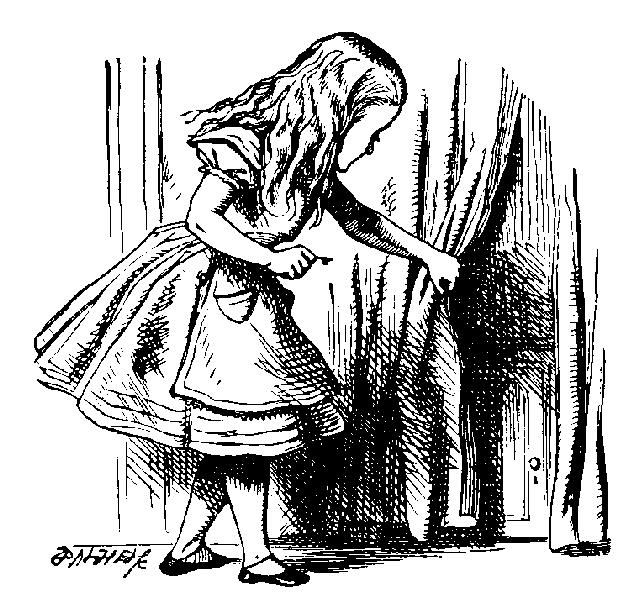
For the first-time writer, getting published can feel rather like Alice in Wonderland after she’s been knocking back the re-sizing potion. You stand in front of a door marked ‘Success and Validation’ and feel too insignificant to reach for the handle. Either that or perhaps you feel that world’s too small, too narrow for you.
Moving past that, say you get a glimpse into the land of publishing – at a writers’ conference or literary festival - and begin encountering these literary types. This can be very much like bumping into the White Rabbit who doesn’t have time for you or, equally frustratingly, the Mad Hatter who has all the time in the world but doesn’t seem to be making much sense.
‘Do you have a social media profile?’ MH demands. ‘Are you on Twitter? You really should be on Twitter.’
What’s that got to do with publishing a book? You may well wonder. And as for having ‘a marketing hook’ and ‘a premise’, well you’ve never been fishing and does a writer really need to own property? In sum, it can all be rather overwhelming.
So how does a first-time writer approach this practically if, say, your goal by year’s end is to secure a publishing deal?
But before we get there, let’s outline what securing a publishing deal today actually entails:
1. Writing a book
2. Getting an agent
3. Helping your agent latch onto something that will promote your book to publishers and large numbers of the book-buying public
So, to achieve your end goal, limit yourself to 3 projects - just the 3 - that will support you in this.
1. First and foremost, complete your book ensuring it’s the best it can be
2. Finding the right agent for you, and getting them interested them in your book
3. Have a marketing hook
How do you break these projects down into more manageable tasks?
Well for Step 1, you might break it down this way.
- Complete a first draft of your story
- Read as many books, and attend as many talks as you can, to learn everything there is to learn about the craft of writing
- Talk with other writers about the creative process
- Go back and revise your first draft, factoring in all you’ve learnt
- Share this version with several readers and get their input. Be sure that your readers are fans of the genre you are writing in. And supportive of you
- Go back over your writing, factoring in what your readers have said
- Share that revised draft with another round of readers. A fresh set
- Go back, refine
- Share it with a professional who can get your submission shipshape before you submit. Don’t waste a first impression
Step 2
- Make time for an outing to a bookstore. Pull off the shelves all the books you’ve ever loved. Find a seat – this can be cross-legged on the floor – and pull out your notebook and pen. Go to the acknowledgements page and see whether they name their literary agent. Jot the name down.
- Attend a workshop for advice on how to hone your submission
- Check the Writers' & Artists' Yearbook for the contract details of your selected agents
- Go online and learn more about your selected agents. Do you like the sound of them?
- Write a bespoke letter to the agent you most like the sound of, outlining your proposal and inviting them to read it.
For Step 3, be sensible here. The point is not to have a blog or an Instagram account, the point is to have a marketing hook. What matters here is that a significant number of people will buy your book and that your agent and editor can justify that to a sales and marketing team who can in turn persuade the buyers at supermarkets and major book retailers that they’re going to make some margin out of selling your book in bulk.
So what do you need to do?
- Well, you could woo a major celebrity and get your face on the cover of every magazine going
- Alternatively, you could secure a column in a national newspaper, which ensures a high profile and wide readership
- Or, come up with some brilliant blog like ‘Julie & Julia’, get major media attention and have the publishers ringing you non-stop, followed by the movie moguls
- Or, realistically, write a damn good book with broad appeal.
And, remember to take your time. White Rabbit and Mad Hatter are working to their own erratic schedule. Do you want to be chasing after them? Or running your own race?
Comments